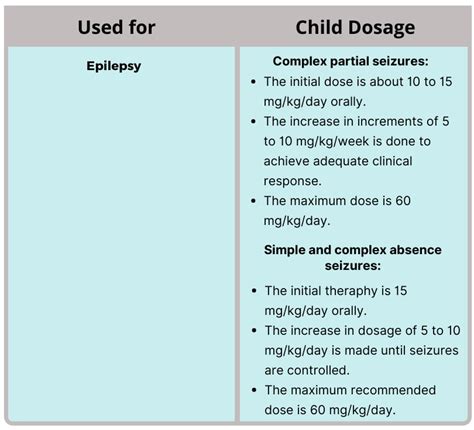Intro
Discover 5 common Divalproex side effects, including mood changes, weight gain, and hair loss, and learn how to manage them with proper treatment and medication management, reducing risks of valproate toxicity and seizures.
The importance of understanding the potential side effects of any medication cannot be overstated, and Divalproex is no exception. As a medication commonly used to treat certain types of seizures, bipolar disorder, and to prevent migraine headaches, its side effects can have a significant impact on a patient's quality of life. It is crucial for patients and their healthcare providers to be aware of these potential side effects to ensure the safe and effective use of Divalproex. By understanding the possible side effects, patients can better manage their condition and make informed decisions about their treatment.
Divalproex, a valproate medication, has been widely used for its therapeutic benefits, but like all medications, it comes with a range of potential side effects. These can vary from mild and temporary to severe and potentially life-threatening. The severity and likelihood of experiencing side effects can depend on several factors, including the dosage, duration of treatment, individual patient characteristics, and other health conditions. Recognizing the signs and symptoms of these side effects is essential for timely intervention and minimizing their impact on the patient's health and well-being.
The management of Divalproex side effects often requires a collaborative approach between the patient and their healthcare provider. This includes monitoring for signs of side effects, adjusting the dosage or switching to a different medication if necessary, and employing strategies to mitigate the effects. Patient education plays a critical role in this process, as informed patients are better equipped to manage their treatment and seek help when needed. By exploring the common and less common side effects associated with Divalproex, patients and healthcare providers can work together to optimize treatment outcomes and minimize adverse effects.
Divalproex Side Effects Overview

Common Side Effects of Divalproex
Common side effects are experienced by many patients taking Divalproex and can include: - Nausea and vomiting - Diarrhea or constipation - Drowsiness or fatigue - Dizziness or lightheadedness - Changes in appetite or weight - Hair loss - Tremors or shakingLess Common but Significant Side Effects

Monitoring for Less Common Side Effects
Monitoring for less common but significant side effects involves regular check-ups with a healthcare provider and may include: - Regular blood tests to check liver function and blood cell counts - Monitoring for signs of infection, such as fever or sore throat - Reporting any changes in mood, behavior, or cognitive function - Regular review of medication side effects and adjustment of treatment as necessaryRare but Serious Side Effects of Divalproex

Recognizing Rare but Serious Side Effects
Recognizing the signs of rare but serious side effects is critical for timely intervention: - Severe abdominal pain that may radiate to the back, which could indicate pancreatitis - Yellowing of the skin or eyes (jaundice), which could indicate liver damage - Suicidal thoughts or behaviors, which require immediate psychiatric evaluationManaging Divalproex Side Effects

Strategies for Managing Side Effects
Strategies for managing Divalproex side effects may include: - Taking the medication with food to reduce gastrointestinal side effects - Staying hydrated to minimize the risk of kidney stones - Engaging in regular physical activity and maintaining a healthy diet to manage weight changes - Keeping a side effect journal to track and report changes to the healthcare providerDivalproex and Special Populations

Considerations for Special Populations
Considerations for the use of Divalproex in special populations include: - Pregnant women: Close monitoring for fetal development and consideration of alternative treatments when possible - Children: Regular monitoring of liver function and blood cell counts, and adjustment of dosage based on weight and response to treatment - Elderly: Dose adjustments to minimize side effects, such as dizziness and confusion, and regular review of medication interactionsConclusion and Future Directions

As we look to the future, the importance of continued research and development in the field of neurology and psychiatry cannot be overstated. By advancing our understanding of the mechanisms underlying neurological and psychiatric conditions, and by developing new and innovative treatments, we can improve the lives of countless individuals affected by these conditions. The journey towards better health outcomes is ongoing, and it requires the commitment and dedication of healthcare providers, researchers, and patients alike.
What are the most common side effects of Divalproex?
+The most common side effects of Divalproex include nausea, vomiting, diarrhea, drowsiness, dizziness, and changes in appetite or weight.
Can Divalproex cause serious liver damage?
+Yes, Divalproex can cause severe liver damage, although this is rare. Regular blood tests to monitor liver function are an essential part of managing patients on Divalproex.
How can I minimize the side effects of Divalproex?
+Minimizing the side effects of Divalproex involves taking the medication as directed, reporting any side effects to your healthcare provider, and following their advice on managing side effects, such as taking the medication with food or staying hydrated.
We invite you to share your experiences or questions about Divalproex side effects in the comments below. Your insights can help others better understand and manage their treatment. If you found this article informative, please consider sharing it with others who might benefit from this information. Together, we can work towards improving health outcomes and enhancing the quality of life for individuals affected by neurological and psychiatric conditions.
